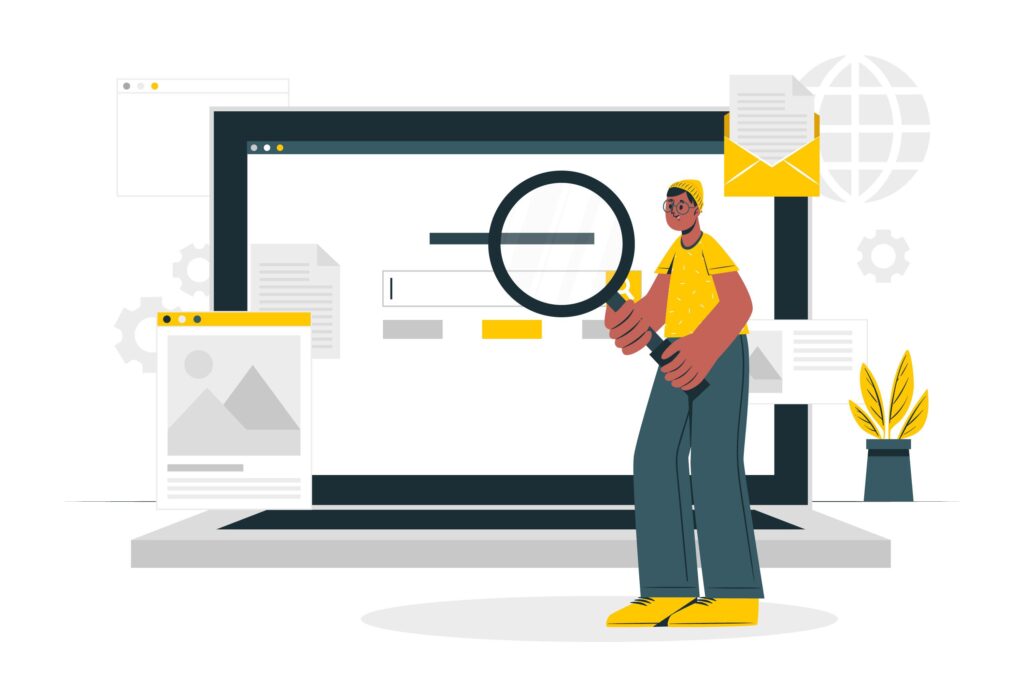Creating detailed buyer personas is crucial for jewellery brands aiming to tailor their marketing strategies effectively. By understanding the demographics, psychographics, and purchasing behaviors of their target audience, brands can craft personalized experiences that resonate deeply with customers. For instance, personas like “The Luxury Enthusiast,” “The Trendy Millennial,” and “The Thoughtful Gift-Giver” help in segmenting the market and addressing specific needs and preferences. Implementing these personas allows jewellery brands to enhance customer engagement, improve product offerings, and drive sales.
Competing in the jewellery market necessitates comprehending your customers.
One way to achieve this is by crafting compelling buyer personas, which represent your ideal buyers and shape your marketing strategies.
This guide will discuss how one can develop effective jewellery brand buyer personas.
By knowing one’s audience, it becomes possible for you to tailor your digital marketing services, SEO services, PPC services, and other remarketing efforts to better meet their needs.
What are Buyer Personas?
Buyer personas entail comprehensive descriptions of the perfect purchaser.
They incorporate detailed information about demographics, behaviours, motivations, and goals.
These will help you know what motivates your clients and how you may attract them.
Why are Buyer Personas Critical for jewellery Brands?

Fig 1. An image of two tiaras bejeweled with pink flowers.
For jewellery companies, creating buyer personas enables them to:
> Enhance targeting
Customize your advertising messages so that they resonate with specific groups.
> Improve Product Development
Create products that satiate the needs & wants of their target market.
> Optimize Marketing Spend
Direct resources more effectively, focusing on high-value segments.
> Increase Customer Loyalty
Make personalized experiences that lead to long-term relationships.
Steps To Creating Buyer Personas for Your Jewellery Brand
Below are the necessary steps to craft top notch buyer personas!
Conduct Market Research
Start collecting data about existing customers and potential ones through surveys, interviews, and analytics tools regarding demographics, purchase behaviour, and preferences, among others.
Identify Key Characteristics
Examine all the individuals who buy from you for commonalities, e.g., age bracket, region, style of jewellery bought often, etc.
Segment Your Audience
Divide your customers into different groups depending on these characteristics, each representing a unique buyer persona with distinct needs and incentives.
Develop Detailed Profiles
Create thorough profiles for every persona, including:
1) Demographics
Age group, gender, income level, education level, and marital status.
2) Psychographics
Hobbies, interests, values, and lifestyle.
3) Buying Behaviour
Understand the following:
– How frequently do they buy?
– What are the key influences on their jewellery purchases?
– Which are their preferred channels?
4) Goals & Challenges
Get to know this to solve it.
– what’s their purpose and barriers to meet it?
Use Real-World Examples
Support your buyer personas with examples from the real world.
This helps in bringing out the actual people who will be working with them.
Real-world Jewellery Buyer Personas: Examples
Now, let us give you three basic buyer personas in jewellery!
Persona 1: The Trendsetter
Name: Emily
Age: 28
Occupation: Social Media Influencer
Income: $60,000/year
Location: New York City
Interests: Fashion, Travel, Social Media
Buying Behavior
– She prefers exclusive and trendy jewellery.
– She buys jewellery online and follows brands on Instagram for jewellery products.
– She goes for unplanned buying after seeing ads on social media or recommendations by influencers.
Goals and Challenges
- To keep up with fashion trends in jewellery and get unique pieces that can be showcased to her followers.
- Finding unique, exclusive, and high-quality items is a challenge for her!
Persona 2: The Classic Collector
Name: Sarah
Age: 45
Occupation: Lawyer
Income: $120,000/year
Location: Chicago
Interests: Fine Arts, Wine Tasting, and Classical Music.
Buying Behaviour
– The type of jewellery Sarah likes is elegant, timeless pieces which can become family heirlooms.
– Sarah shops at luxury boutiques as well as highly regarded online stores.
– Price does not matter to her, but she values quality and workmanship more than anything else.
Goals and Challenges
- Finding investment-worthy pieces that hold value.
- Differentiating between genuine quality and overpriced ones can be difficult for her when shopping for jewellery items because she is not an expert gemologist.
Persona 3 − The Gift Giver
Name: John
Age: 35
Occupation: Marketing Manager
Income: $80k/year
Location: LA
Interests: Sports, Technology, and Traveling.
Buying Behaviour
– John buys jewellery as a gift for his girlfriend or family members.
– John looks for personalized and meaningful jewellery pieces.
– He shops both online and offline, especially during holidays and special occasions.
Goals and Challenges
– Wishes to find a perfect gift that reflects the thought.
– Usually confused by how many items there are to choose from and uneducated about modern trends in jewellery.
How to Use Buyer Personas in Your Marketing Strategy?
Now, this is the most important aspect of buyer personas, and with it, you can boost your marketing strategy.
Make Your Content Specific
Create content reflecting each buyer’s persona so that it speaks directly to them.
For example, write a new blog post on trendy jewellery for Trendsetters, while articles about the history of jewellery making would appeal to classic collectors.
Optimize SEO Strategies
Integrate keywords that will resonate with your buyer personas.
For instance, “unique jewellery trends” for the Trendsetter and “timeless investment pieces” for the Classic Collector.
This will lead to better search engine rankings and attract relevant traffic.
Personalize Email Campaigns
Divide your email list as per the buyer personas & send personalized content.
Updates on new collections and influencer collaborations might be sent to Trendsetters, while Classic Collectors could be invited to exclusive events or shown previews of high-end pieces.
Enhance Paid Ad Campaigns
Design more effective PPC campaigns based on your personas.
Create advertisements that speak directly to what your most valued persona values most.
An ad showcasing trendy designs and influencer endorsements would target a trendsetter, while one emphasising quality craftsmanship would target a classic collector.
Implement Remarketing Strategies
Buyer personas can also be used in remarketing messages and offers.
For example, an offer for a stylish necklace at discounted prices may be sent via email or Facebook advertising directed at a potential customer who once came close to buying as indicated by their online behaviour, such as visiting but not purchasing from the website.
A discount code for an item like this could be given specifically to people classified as trendsetters based on their purchase patterns.
The classic collector can receive personalized recommendations regarding timeless bracelets, among other options, through emails using this strategy.
Measuring the Success of Your Buyer Personas

Fig 2. An image of a tracking dashboard.
To ensure your buyer personas are effective, track key performance indicators (KPIs) such as:
> Customer Engagement
Measure website visits, social media engagement, and email opens.
> Conversion Rates
Track the proportion of visitors who become customers.
> Customer Retention
Keep tabs on repeat business and loyalty.
> Sales Growth
Determine how successful targeted campaigns have been in boosting sales overall.
Keep revising and updating buyer personas using new data and changing customer behaviors. This will keep you current so that you can still satisfy your audience’s needs.
Conclusion
Creating quality buyer personas remains crucial for any jewellery brand aspiring to succeed in digital marketing.
By knowing your customers better and aligning promotional efforts with their specific tastes, brands can hone their targeting capabilities, create a more loyal customer base, and manage their marketing investments prudently.
You can use the examples given within this guide as a foundation to develop successful buyer personas that will take your jewellery brand’s marketing strategy above ordinary levels.
Wildnet Technologies has been leading digital marketing services for 17 years, be they SEO, SMM, or PPC campaigns.
FAQs
FAQ 1. Why is it important to have a buyer persona?
Ans: Understanding your ideal user or buyer persona is quite important.
Because this will help you target them accurately. And with accurate targeting, they will be able to find you when they need you, i.e., to buy your offerings!
FAQ 2. How do businesses benefit from buyer personas?
Ans: The entire marketing strategy is based on ideal buyer personas.
With them in mind,
– business and marketing goals are set,
– content types are chosen,
– marketing platforms are identified,
– KPIs are set, and
– marketing campaign is running!
FAQ 3. What is the most important part of a buyer persona?
Ans: Age, geographical location, decision-making power, and interests are the most important parts of a buyer persona.
FAQ 4. What is the purpose of a customer persona?
Ans: The customer persona, aka buyer persona, is used to find out the ideal customer that will definitely buy your offerings.
The customer persona helps in figuring out the type of after-sales support needed and possible pricing for the same.







